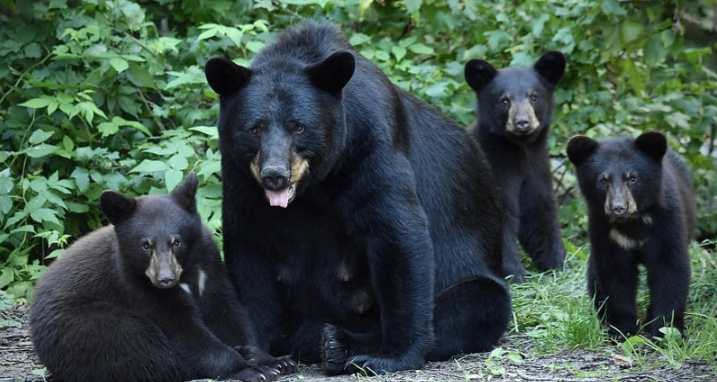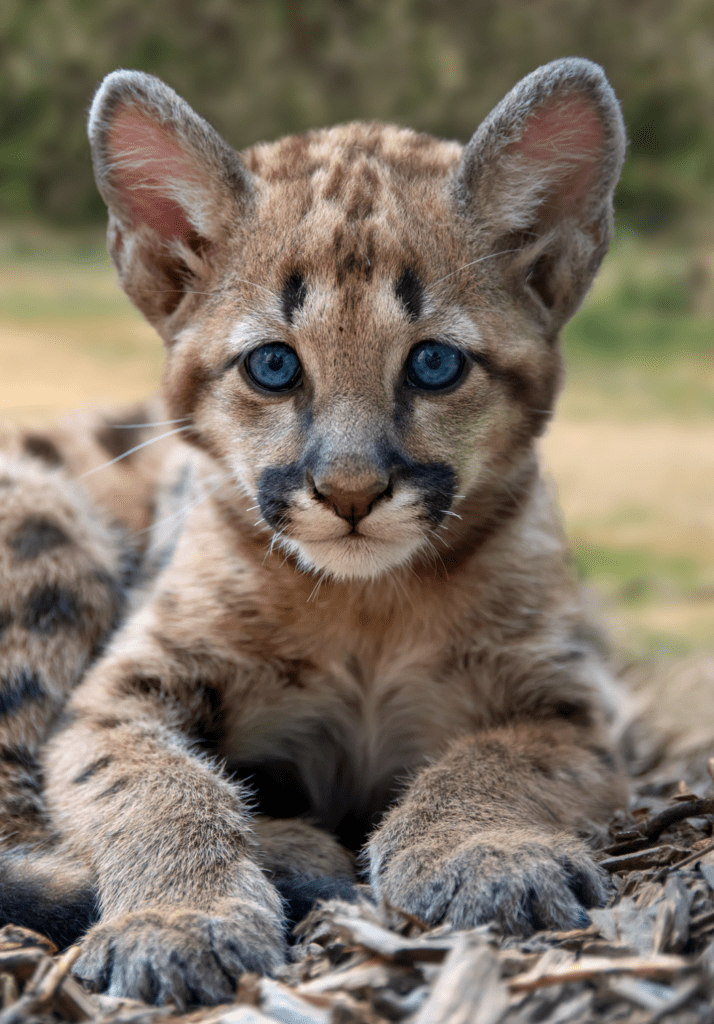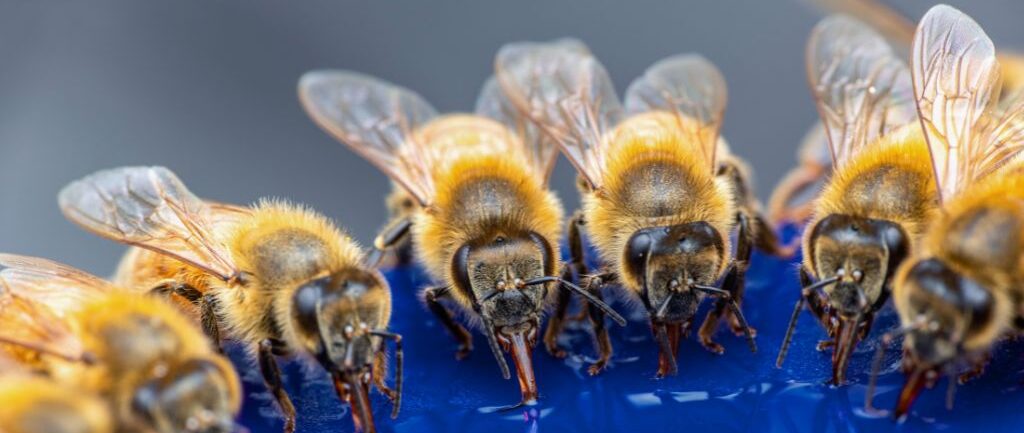December 19, 2024
by Dr. Fran Santiago-Ávila
WW1 Science and Advocacy Director
Animals are not just numbers. Yet, when we discuss wildlife policy, the conversation typically revolves around the how human needs and desires interact with wildlife populations.
Rarely, if ever, do we consider the animals themselves: who they are, who/what they value, and how our policies impact them as individual and social beings.

This needs to change, for both ethical and scientific reasons. Wildlife policy cannot only serve human needs and desires—that is precisely the worldview that has led us to our current predicament of biological annihilation and climate change. To truly fix our relationship to the other-than-human world, we must respect the intrinsic value of animals beyond that of their species, as autonomous agents with their own legitimate claims to well-being, and their rightful place in a broader, inter-species social community.
This requires a shift in perspective—one that challenges long-held paradigms and embraces a more ethical and respectful approach to the protection of nature and our relationship to wild animals. Braving this new frontier is essential if we hope to create a world where humans and wildlife flourish together. The first step is to seriously grapple with who animals are, and our responsibilities towards them.

Who Are Animals?
Who are animals? Although we often speak of them this way, animals are not mere “resources”, “populations” or “species”. Animals are individuals with lives, consciousness, agency, personalities, emotions, cognition and desires. Science has made it impossible for us to ignore these facts, proving that many animals experience joy, fear, love, empathy, grief, and a host of other emotions and psychological states that we have historically considered the exclusive domain of humans. I’m not only speaking here of charismatic species like chimps or elephants—such capabilities are widespread throughout the animal kingdom: crabs and lobsters feel pain and actively avoid it; bumble bees experience emotions and even play; rats feel empathy for other rats in distress; trout would rather be electrically shocked than be without companions; and many animals love and grieve the loss of loved ones. The examples are truly legion.
Beyond these internal capabilities, many animals are embedded in deep social (i.e., not just ecological) relationships with others that are central to their lives. Wolves and orcas, for instance, live as families, with each family member contributing uniquely to their survival and well-being. These bonds are more than ecological curiosities or evolutionary adaptations—they are based on the animals’ affections towards each other, and we see clear evidence of this whenever we see them nuzzling, vocalizing, sleeping together, or playing.
Western science and philosophy now acknowledge what many throughout history have always known: that animals have consciousness, subjectivity (an individual perspective), agency, and relationships. That we, as humans, have all these attributes not because we are humans, but because we are animals.
Today, Charles Darwin’s theory of evolution is broadly recognized as accurate, establishing a continuum among different species. Limiting this continuum to only physiological and biological aspects, however, is a mistake. This continuum extends to encompass phenomenological, cognitive, emotional, and social dimensions. The evidence supporting this is compelling, placing the burden of proof on those who reject the presence of “humanlike” traits in animals solely because they are not human.
Developing a “science-based” approach to wildlife means not only acknowledging, but integrating, such knowledge into policy and interventions. This requires us to consider that such subjectivity and relationships are integral to animals’ lives and well-being, and should be central considerations to how we engage with them. Moreover, all this evidence points unequivocally towards each animal, and each relationship between animals, as having its own value beyond its utility for humans. Animals value their lives, their well-being, and that of their loved ones.
Recognizing animals’ intrinsic value means acknowledging their own claims to life and well-being. It means acknowledging that, given all that we know about animals, our behaviors towards them are of grave moral import. It means that our responsibilities towards animals go beyond the population viability of species—they are social responsibilities as well. As philosopher Mary Midgley noted, humans have never lived in isolation from animals. We exist in a mixed-moral community, shaped by mutual relationships with nonhuman beings. This means our attitudes and behaviors towards animal lives also matter, regardless of how “sustainable” they may be, and that merits a re-examination of our claims to the right to harm them for mere recreation or convenience.
The Role of Ethics in Wildlife Policy
Wildlife policy, as it stands, is grounded in anthropocentric paradigms. These worldviews prioritize human perspectives and desires—such as vindicating our prejudices against animals, fulfilling our desire to use them for recreation, or justifying killing them for our convenience. What science tells us about animals should give us pause about continuing to rely on these paradigms. But science can only tell us what is physically possible or measurable, it cannot dictate our values or justify our actions. Those responsibilities lie squarely in the realm of ethics.

Consider the historical roots of “wildlife management” in the United States, shaped by the “wise use” philosophy of figures like Gifford Pinchot, first head of the U.S. Forest Service, and lauded for being one of the fathers of scientific “wildlife management.” Under this philosophy, other-than-human lives are valued instrumentally, as “natural resources” to be used sustainably, exclusively for human benefit. In fact, Michael E. Soulé, touted as the father of conservation biology, decried “wildlife management” as purely interested in precisely exploiting nature for human benefit—although he also suggested that “animal welfare” should remain divorced from conservation. That approach persists in modern wildlife agencies and their policies, which prioritize human recreation or convenience over wild animal well-being, allowing practices like recreational killing and lethal control, even if it is ineffective and unnecessary, as long as wildlife populations remain “viable”.
Emerging paradigms in conservation, such as compassionate conservation and multispecies justice, are beginning to challenge these entrenched frameworks. They are redirecting ethical attention towards the human-caused harms done to individual animals and their social relationships, demanding their equitable consideration, and highlighting the dignity, autonomy and interdependence of all beings. These approaches reject the instrumentalization of animals and instead advocate for policies that respect their lives, relationships, and ecological roles as ends in themselves. By integrating these perspectives, conservation can evolve into a practice that reflects not only scientific understanding, but also ethical accountability.
A Call to Action
Changing our approach to wildlife policy begins with education, advocacy and broader public participation in wildlife policy. At Washington Wildlife First, we are committed to building awareness about the ethical dimensions of wildlife policy and empowering the broad public, who show more concern for animals than wildlife agency staff or their traditional constituencies, to demand policies that respect all beings. This includes pushing for systemic reforms that democratize decision-making and break down barriers to the public’s participation, such as reforming Washington’s wildlife governance structure to make it more responsive and accountable to the public, rather than allowing it to continue to be controlled by narrow interest groups.
We also invite everyone to reflect on their personal relationships with wildlife, and to highlight their ethical perspectives in their engagement with the Department and the Commission. What would it mean to truly respect the lives of other animals? How might we live in ways that affirm their intrinsic value? As Midgley reminded us, our empathy and care are not limited to humans—they extend naturally to the broader community of life. Empathy is not a zero-sum game—we need not choose between empathy for humans or empathy for animals. Such powers increase, rather than deplete, with their use.
Wildlife policy has always been about much more than science; it reflects our values and our responsibilities to those with whom we share this planet. By recognizing the intrinsic value of animals, we can move towards a future that respects their lives and fosters coexistence. We are committed to this vision, and we invite you to join us in advocating for policies that honor the dignity, autonomy, and worth of all living beings. Together, we can reimagine our relationships with wildlife and build a more just and compassionate world.
